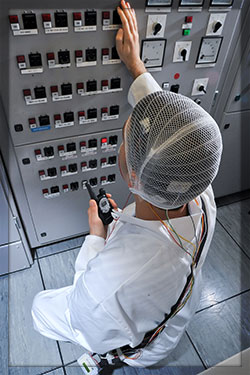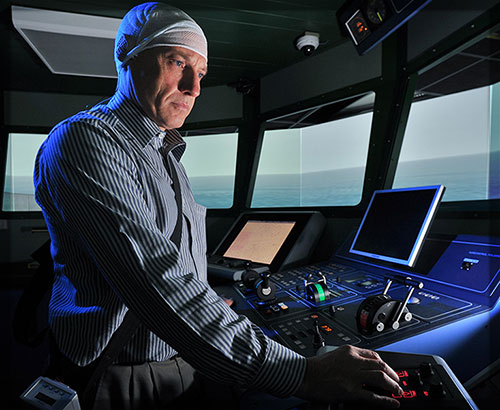Shipping is perhaps the most international of all the world’s great industries; it also requires stringent protocols and procedures to ensure safety in challenging environments. Uncertain weather, the potential for equipment failures and commercial realities all contribute to the risks seafarers face when they report for work each day.

For example, ships’ crews are managing increasingly competitive voyage schedules with fewer crew members. This can lead to on-the-job fatigue and related issues, such as preventable accidents and the psychological stress that stems from increased workload.
When the safety and security of life at sea, protection of the marine environment and more than 90% of the world’s trade depend on the professionalism and competence of seafarers, that fatigue and stress can have devastating consequences.
That’s why The TK Foundation is providing funding for an exciting three-year research project which is focused on testing tools to measure and manage on-board fatigue, with the goal of improving the welfare of professional seafarers, and, in turn, safeguarding the waters they sail.
Led by Southampton Solent University, a consortium of international research institutions is giving MARTHA, a prototype fatigue prediction model created specifically for shipping operations, its sea trials.
Volunteer crew members rate their fatigue and stress levels in a weekly diary for three to four months, and this data is sent directly to the research team by e-mail. Some crew members are also wearing Actiwatches at the beginning and end of the study period to record their physical activity levels. In addition to this personal data, researchers are collecting data on the voyages, including the times of their port calls, weather conditions and other situations which are likely to affect the quality of sleep.

The research is not without its challenges, explains Mike Barnett, Director of Research and Innovation at Southampton Solent University’s Maritime & Technology Faculty. “Ship crews work literally ‘over the horizon’ and are prone to sudden changes in voyage plan, so it can be difficult to monitor seafarers and to collect meaningful data. We are also working with a diverse and multi-national workforce, where fatigue is all too often accepted as the norm, and there can be resistance to both acknowledging and reporting it.”
That noted, Mike has been pleased with support the team has received from industry. Analysis of the first year’s data is underway, and year two data collection has begun.
Project MARTHA is particularly timely given The International Maritime Organization’s (IMO) recent decision to revise its fatigue guidelines over the next two years. The research team looks forward to making a valuable contribution to the work the IMO is doing to improve maritime safety.
To learn more about Project MARTHA, visit www.warsashacademy.co.uk.
Also, learn more about The TK Foundation’s work in the Maritime sector.